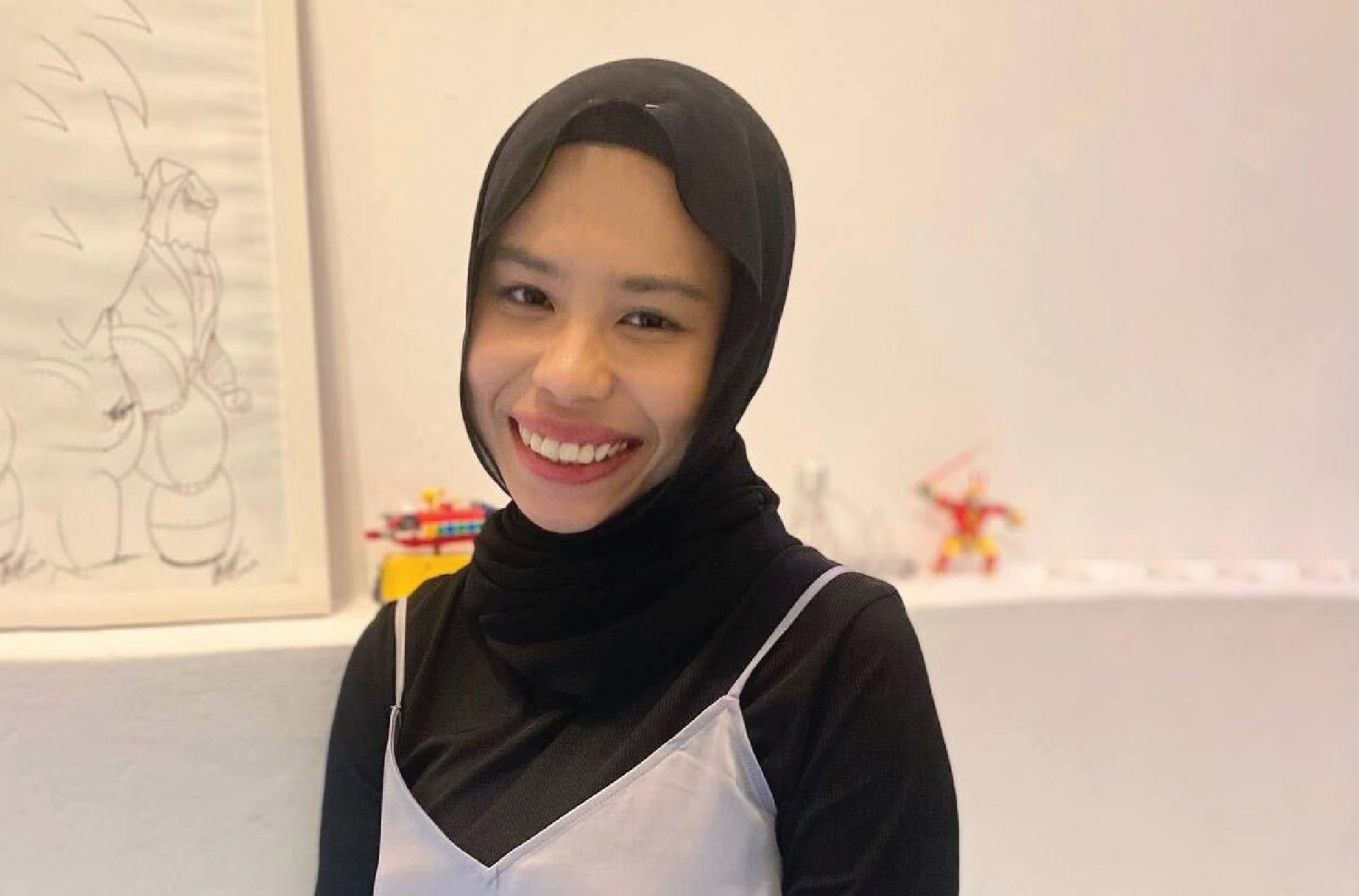“This is not what I wanted. Why am I here?”
Norashikin Hasanan asked herself this question over and over during her first year in polytechnic. She was struggling with the software she had to learn as part of her course, and did not see herself working in this field after she graduated.
“Back then, I would never have imagined how this course would open up doors and help me find what I am truly passionate about,” the 21-year-old shared.
An unexpected result
Since secondary school, Nora had had her eye on a diploma in child psychology and early childhood education offered by one of the polytechnics. Because of this, she had passed on the offer to take up the Polytechnic Foundation Programme (PFP)* as the early childhood courses were not available under the scheme back then.
“My teachers told us that Secondary 5 and the O-levels were going to be tough,” Nora recalled. “But I decided to go that way anyway to enter the early childhood course. I was prepared to work hard for it!”
Even so, the O-Levels turned out to be more difficult than Nora had expected and it took all her determination (and lots of help from her teachers) to push through. To her delight, she managed to meet the previous year’s cut-off point for the course she was eyeing.
Confident about getting into the course of her choice, Nora filled up the first 6 options with courses related to early childhood. For the rest, she put in random courses that had the same cut-off point as her aggregate score. “I was complacent and thought I would ‘confirm’ get into my top choices.”
A few weeks later, she received her posting results. She had got a place in Republic Polytechnic (RP)’s Diploma in Design for User Experience – her 12th, and last choice.
Dealing with disappointment
“My heart dropped,” Nora shared. “I was in disbelief. When people submit 12 options, they never think they will get the last one!”
Nora called up the polytechnic to appeal, but was unsuccessful. She had missed that year’s cut-off point by a margin and there were no more vacancies.
Though Nora was upset, she eventually decided to take up the course. She talked to her friends and realised that a few of her friends had not qualified for any polytechnic course at all. That convinced her that she should not take things for granted and should give the design course a chance.
Unfortunately, Nora did not enjoy her course at all in the first year.
“I think I was still feeling a little bitter,” she shared. “I also felt very out of place as most of my course mates had some design background, and I seemed to be the only one struggling with the design software. It was demoralising.”
Adapting and learning
The turning point for Nora came at the end of Year 1. Although she had passed all of her modules, she was disappointed with her results and felt that she could have done better.
In Year 2, she resolved to be more serious and found a buddy, with whom she would attend extra lectures and study in between classes. A module on anthropology also sparked a new interest in research and human behaviour. She began to see her course in a new light.
“In anthropology, we asked questions about why people behave the way they do,” she explained. “This is part of the pre-design process and helped me see the bigger picture of how design works – it’s not just about making things look pretty!”
Her new-found interest was a powerful motivator, and even spurred her on to win an award for the research module in her second year.
Internship and beyond
Having identified research as the area of design she wanted to pursue, Nora fought for the chance to intern at an international strategic design consultancy in her final year.
She got in and during her six-month stint, Nora got to apply what she had learnt about human behaviour and research, and a lot more besides. For example, in one project, she had to engage the elderly and analyse their needs and concerns in order to design better senior care facilities. Many aspects of the team’s recommendations were eventually taken up by the client.
“I see purpose in my work when I see tangible outcomes from my project,” Nora shared. “I no longer dream about working in early childhood. Instead, I am keen to continue in this field and positively impact the community through design. It’s very dynamic – every new project is a fresh challenge!”
Nora proved herself to be quick to learn on the job, and be receptive to feedback. Her abilities and positive attitude were recognised by the company, and they offered her a permanent position after her internship, for which she is very thankful.
It was not all smooth-sailing though. After graduating from RP, Nora had initially applied for full-time degree programmes in Sociology to deepen her skills in research, but she was not offered a place. While disappointed, she decided to try again in the next intake.
“Compared to the past, I think I know my goals and strengths better now,” she explained. “It also helped that my colleagues were encouraging and advised me not to settle for courses that I am less interested in. Even if it means I have to juggle school and work, they will support me.”
Today, Nora has just embarked on a part-time degree in Sociology in a local university while continuing to work at the design consultancy as a producer.
She never dreamt that taking up RP’s offer three years ago would lead her down this path, and to a place where she is valued and where she finds meaning.
Making the best of your second chance
For those who find themselves in a similar situation, Nora has these three tips to share:
- Put it on paper: “When I feel stuck, I like to reflect and write, or do up a mind map to represent the situation. This helps me figure out what went wrong and visualise the paths open to me. Knowing my options gives me peace of mind and keeps me going.”
- The people around you matters: “The people I was hanging out with in the first-year of polytechnic were not very studious, and that made me less motivated as well. Having a study buddy I could count on in Year 2 was a great help!”
- Embrace things that are within your control: “When things don’t go as planned, I try to adapt and work around the situation. I can’t change where I was posted, but I can change my attitude towards it. It is up to you to make the effort and seize the opportunities that your course has to offer. You may be surprised about the doors that open for you.”
*The PFP is a one-year programme for students who have done well in the N-levels, to prepare them for entry into Polytechnic without having to go through Secondary 5 and the O-levels.




.jpg)

.jpg)